Elementor is now 10M active websites strong and #PoweredByYou. To mark this special milestone we asked 10 leading Web Creators from around the world featured in our latest End-of-Year Showcase to share their #1 tip for aspiring Web Creators — one piece of hands-on advice they’d give to up-and-coming professionals that shaped their career.
As we keep the spotlight firmly on you, enjoy these empowering words from Web Creators who have moved mountains of pixels, covered oceans of code, and formed trillions of bytes. Read their golden advice, add it to your modus operandi, make it part of your mantra. Write it on a plaque, bookmark it to your favorites, and let their sage words guide you.
Explore the End-of-Year Showcase 2021 winning websites
01
“Break down each step of the process”
Billie Argent – Passionate Digital Agency
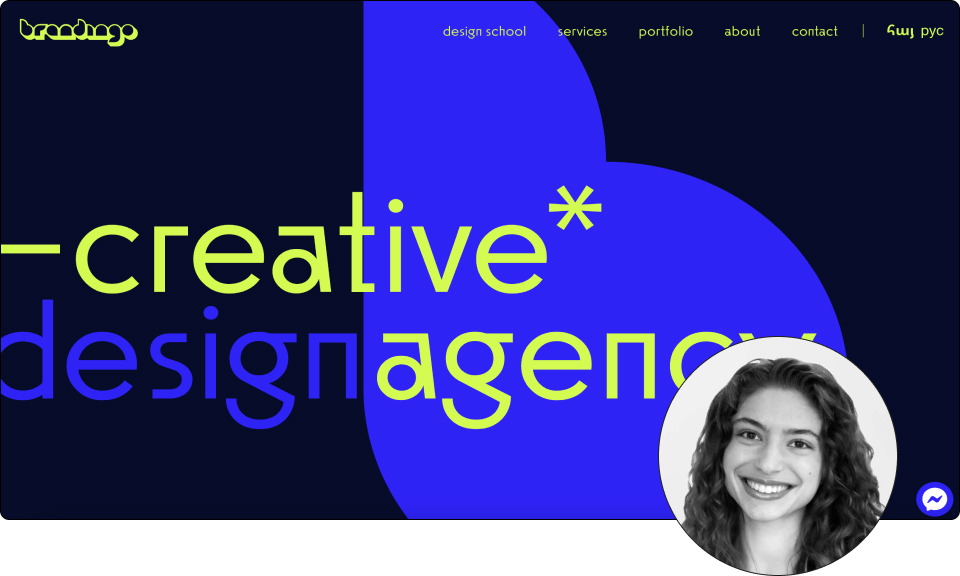
“Don’t let the idea of creating a website intimidate you. Break down each step of the process into small parts, and focus on overcoming each part, one at a time:
- Establishing the main objectives of the website.
- Understanding UX to achieve the objectives.
- Creating the Wireframes.
- Creating the UI (using a free tool like Figma).
- Start building!
For the technical side of things, there are tons of helpful videos on strategy/UX/UI/Elementor on YouTube. For the design, find inspiration from sites like Awwwards, Dribbble, and Behance. So, instead of overthinking it, just have fun with it :)”
02
“Think of website creation as multidisciplinary”
Five by Five Studio
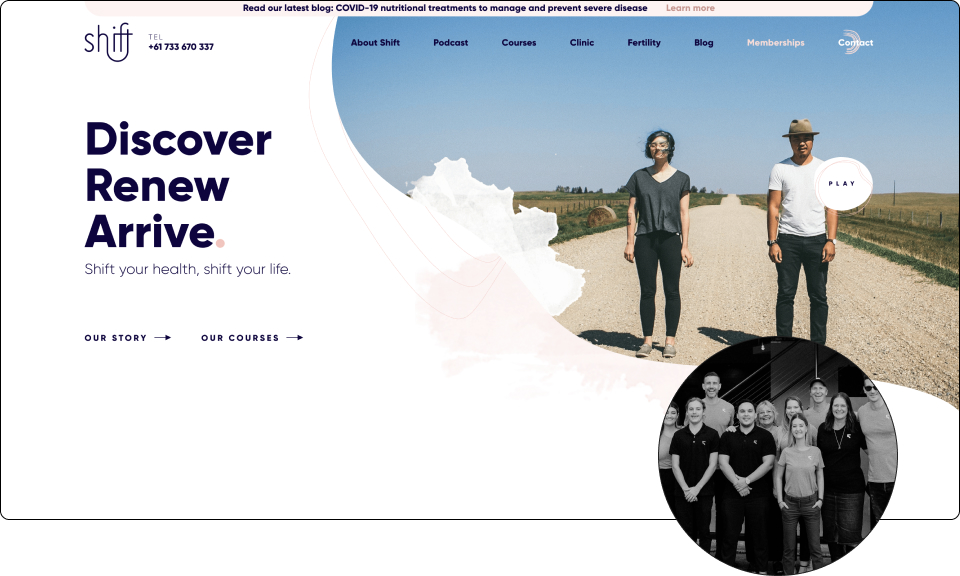
“As a web creation agency that specializes in large-scale, full digital solutions, our number one tip for new web agencies would be to think of website creation as multidisciplinary — not as a single skill that you need to master overnight.
Each discipline within web creation such as design, development, copy, SEO, and web support, actually requires a specialist. Pick one discipline that best resonates with you and slowly, but surely, master your chosen craft.
Taking this approach allows for a team of experts to create a solid, well-oiled product that excites your clients, draws the attention of potential new customers, and reduces those night terrors of wondering how you’re going to do it all on your own!”
Five by Five Studio
“Pick one discipline that best resonates with you and slowly, but surely, master your chosen craft”
03
“Complete design freedom”
Scott Ritchie – pixelshifter
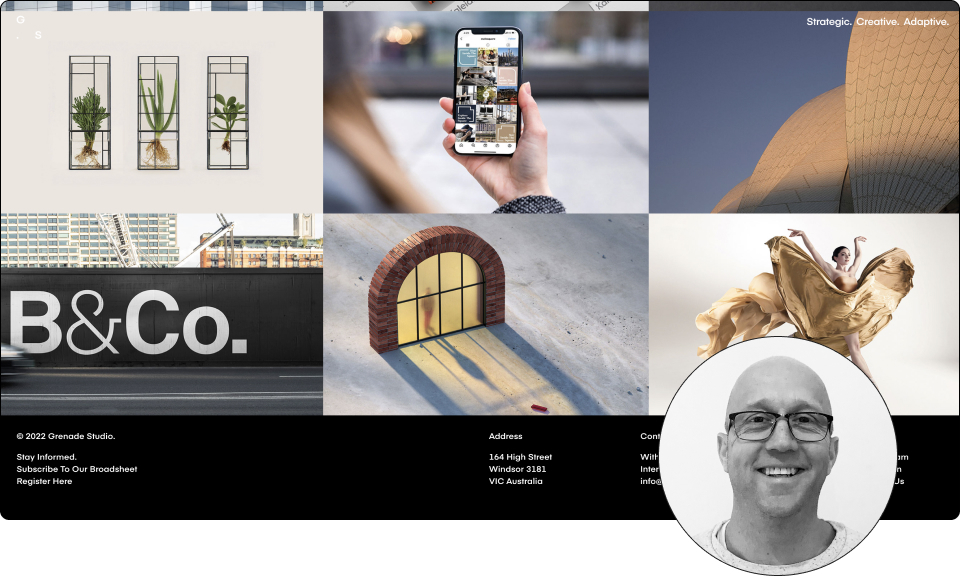
“A Web Creator is defined by their tools. Elementor is an extremely intuitive tool that continues to grow and improve around a very supportive community.
I now use it for complete website builds. The ability to very quickly try out new layout ideas integrate animation and then see the results in real-time is truly awesome. The live editor allows complete design freedom which in turn, allows me to spend more time on improving the user experience and far less time in code.
Preparing websites for a range of different screen sizes has also never been easier, the responsive tools have improved productivity for me drastically. Without a doubt, Elementor has enabled my business to thrive.”
04
“Don’t put limits on yourself”
Maria and Marta – ABC Creación Digital
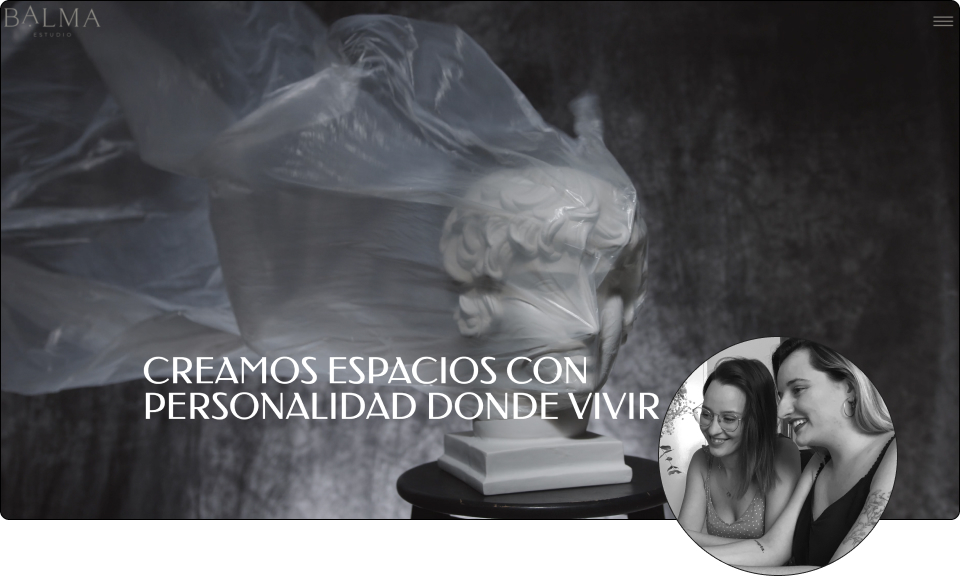
“Do not put limits on yourself when developing a project. No matter how complicated you think it will be to create that website, don’t limit yourself.
Look for inspiration (and especially take a look at the code of any website you like) and try it out. With practice, you will see that you are capable of achieving what you thought was impossible.”
05
“Go where curiosity takes you”
Chris Lettner – The Weather
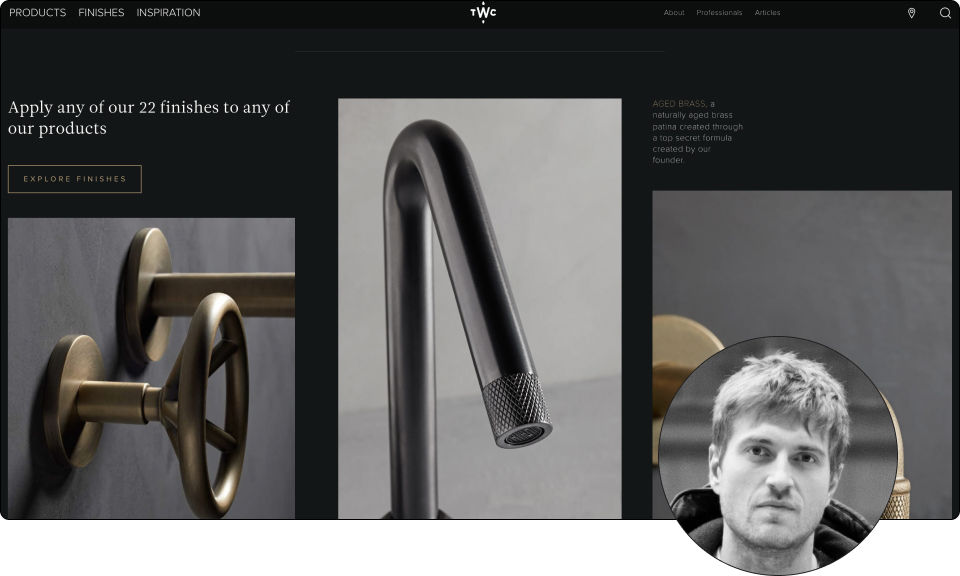
“Work on projects that are your own. Portfolio, moonshot business idea, or oddball personal pet project — it may not be immediately obvious how you’ll get paid when there’s no client but you get to make all the decisions. You learn by going where curiosity takes you.”
06
“Think about the flow”
Enrique Figueroa – Frankentoon Studio
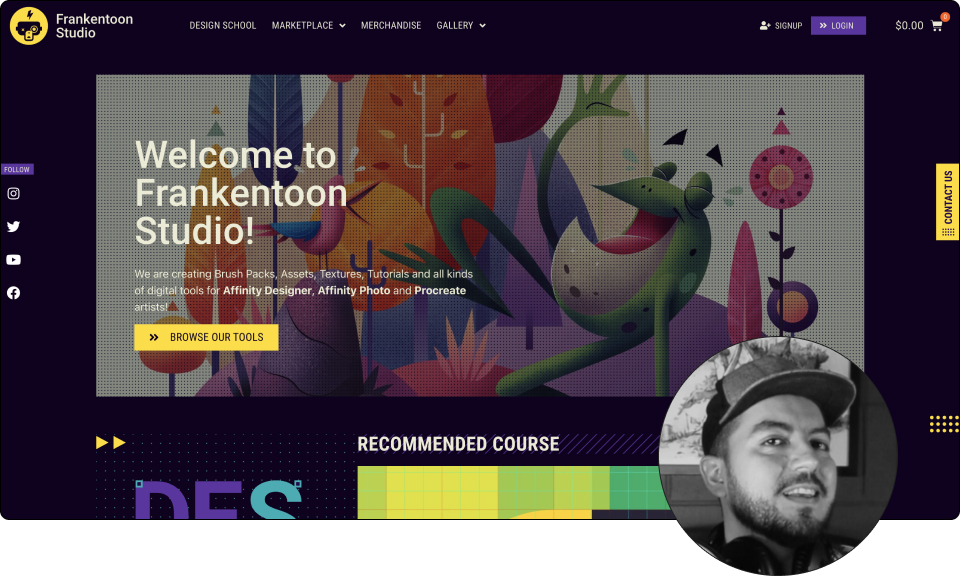
“We’re living the greatest era of web design, where we have many tools to create dazzling animation and all sorts of visual tricks to leave our audience in awe, at our fingertips. However, we don’t have to use all of them at once to really engage our visitors.
Speed, content, and structure, are pillars that were important 20 years ago and equally important today. Don’t use effects and fancy stuff, just for the sake of it. Think about the flow, rhythm, and readability of your static website, before thinking about adding any visual artifacts.
The more websites I build, the simpler they get. Today I’m more careful about those extra loading seconds that could cost me losing a new customer.”
“Don’t use effects just for the sake of it. Think about the flow, rhythm, and readability of your static website, before thinking about adding any visual artifacts”
07
“Design as functionality”
Gaetano Sorangelo – Studio Balzac
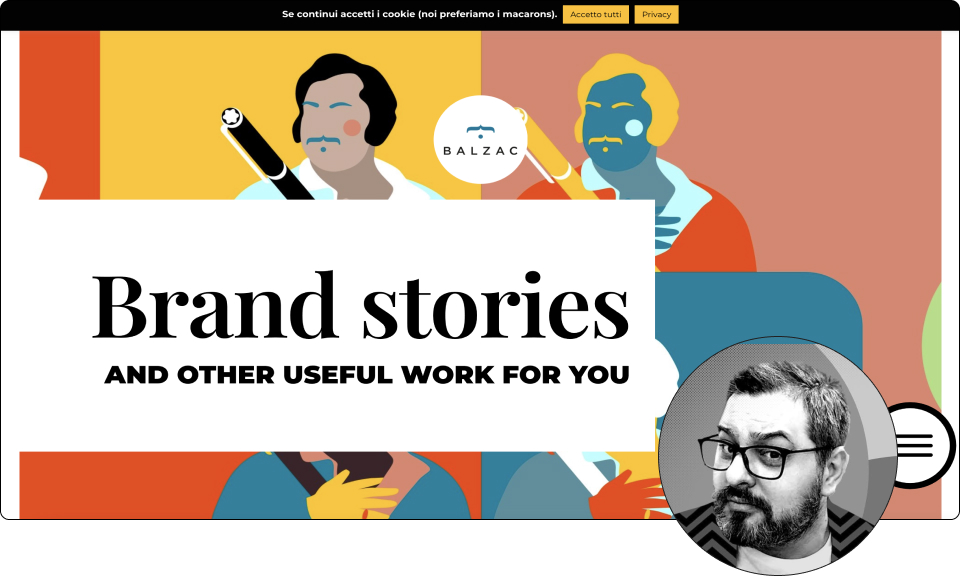
“Design should be considered as an integral part of a website’s functionality. Precisely for this reason I consider wireframing and layouting the most important activities because during these phases it is necessary to take into consideration the fundamental elements of a brand.
Knowing in advance which color palette to use, which shapes we will use and why that specific shape helps to give a website the right features in front of which a user will immediately understand the atmosphere of our project. We must not forget the storytelling of the brand by building one if it does not exist.
Understanding all this, we will be able to quantify the size of the project by producing a clean and good job.”
08
“Interactivity is key”
Gary West Jr. – Superglow

“Interactivity is key! What makes a website interactive? The ability for the user to actively engage with the content and various elements.
Here are some interesting statistics:
– 91% of B2B buyers prefer interactive content to passive content.
– Visual content is 40 times more likely to be shared by consumers on social media and conversion rates are increased by 86%.
– 80% of online users will watch a video through, but a mere 20% of them will actually read the content.
Interactivity tends to lead to better engagement, and better engagement leads to a longer dwell time. It also makes users feel more connected with your brand which in turn makes your brand more memorable.”
Superglow
“Interactivity is key! What makes a website interactive? The ability for the user to actively engage with the content and various elements”
09
“Use empathy and emotional intelligence”
Jovan Lakić – General Condition Studio
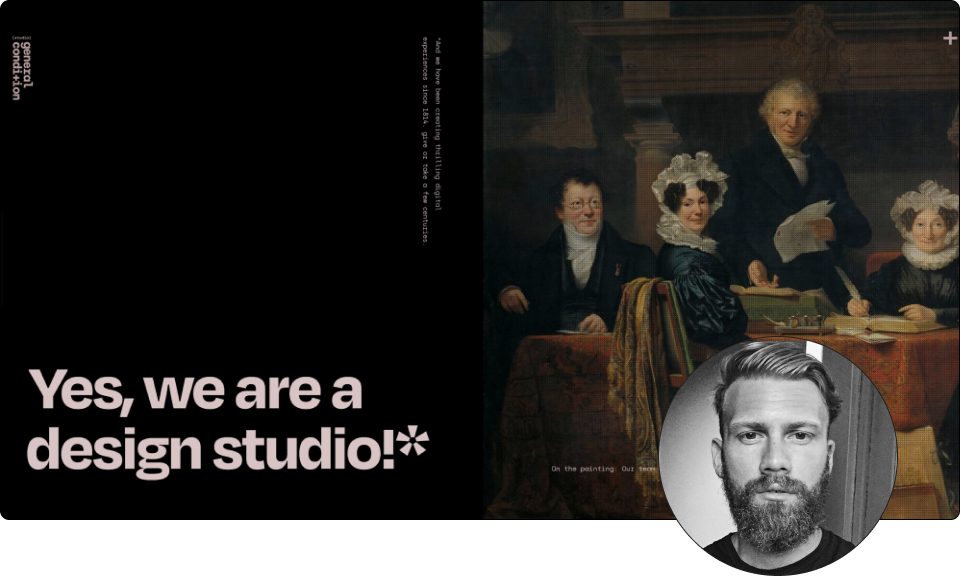
“The design is fluid and constantly changing. It’s under the influence of current social, cultural, global, political, economic, and environmental issues.
These changes often lead us to understand something new, taking us out of our comfort zone.
As we grow, our approach to design evolves. One of the important things about design is empathy and emotional intelligence. Anyone involved in creating digital experiences or designing a consumer-facing product, service, or business should have a greater understanding of customer desires, needs, or feelings.
We have to listen. We need to put the ego aside. Be creative, make new things every day, be inspired by the world around you, work hard and believe in yourself. Always remember: Imagination is an endless possibility.”
10
“Understand your client’s expectations”
Yoni Luksenberg – Elementor
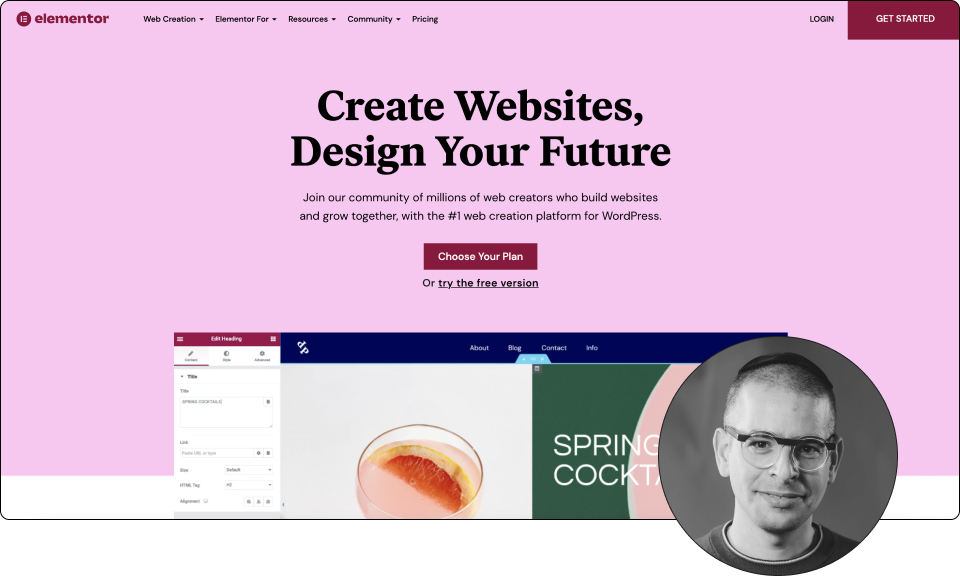
“When a customer comes to you to build their website, what they really need is for you to help them build an online business.
Therefore, it is crucial that you understand what the customer’s expectations are from your services:
– How do they plan to maintain their online business?
– How many employees will work in this online business?
– How will their online business connect them to their customers?
And just like a traditional brick-and-mortar store, setting up an online business is just the beginning, because the real business only begins the day after.
Building a website must serve its intended purpose. What should you do if this is not met? Start by analyzing data, A/B testing variations, and optimizing performance.”

